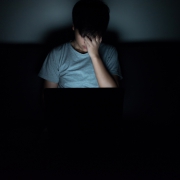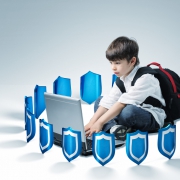The Ill-effects of Cyber Bullying
Cyber bullying is real and must not be ignored. Need convincing? Just take a look at its ill-effects on the victims. Cyber bullying can impact everything from a victim’s performance in school to long-term mental health.
Through this blog, we highlight the importance of cyber bullying prevention and education, especially for young people and students.
Cyber Bullying Decreases School Performance
There’s a good chance that both those who are victims of cyber bullying and those who bully others online perform poorly at school. We can see evidence of this in one study from Pennsylvania. The study found that victims began producing worse grades than usual after the bullying started. One of the reasons for this could be the anxious feelings that come with being a victim of online bullying.
Unfortunately, if poor performance continues for victims, it could have a negative impact on their future. With 20-percent of young people experiencing cyber bullying in Australia, that’s a lot of students whose futures could eventually suffer.
An Increased Risk of Self-harm and Suicide
Although it’s easy to assume that cyber bullying is somehow less harmful than face-to-face or physical bullying, there’s a lot of evidence that says it may be actually worse. One major study revealed how children who are victims of cyber bullying are more likely to consider suicide than those who are bullied in the classroom.
Naturally, this is concerning for any parent or teacher. While it isn’t always possible to see everything a child is doing online, it is possible to prevent some of its harmful consequences. Positive actions such as using a cyberbullying safety tool in Australia allow parents and teachers to tackle local incidents of online harassment better.
Low Self-esteem
According to figures from the Australian Government, cyber bullying is most likely to happen in years five and eight. Sadly, these are also the years where children are moving through different phases of puberty. As a period that’s already confusing, being exposed to online harassment can lead to low self-esteem.
Fortunately, there is hope for changing this. One study has revealed that children whose parents and teachers try to stop bullying while using positive coping mechanisms can resolve self-esteem issues. They’re able to achieve this by learning how to cope with the bullying from someone they look up to. As such, it’s essential that teachers and parents work together to support children who experience bullying online.
Poor Self-image
Did you know that children who are cyber bullied are two times more likely to refer to themselves as fat versus those who aren’t cyber bullied? This comes from research that took place in Ireland. Although the study was small, it did also indicate that children who had a lot of support from their friends were less likely to have a negative body image.
Once again, both parents and teachers can play a significant role in preventing children from developing a poor self-image. For example, digital monitoring tools for teachers can highlight cyber bullying that takes place in the school. Once incidents are highlighted, they can work with the students and their parents to help them support each other better.
Spending More Time Alone
Unlike adults, many children don’t have the right coping skills for managing bullying. Depending on their age, they may choose to lash out, seek help, or withdraw from their friends and family. Some might experience a sense of shame that prevents them from seeking help. Or, they may fear the consequences or speaking out or standing up to the bully.
To avoid discussing the problem, they might even choose to spend more time alone, stunting their social skills in the process. According to statistics, around 52% of children will seek help. However, the remaining 48% is a large number that we can’t ignore. Online monitoring tools for parents allow them to take charge at home. If they become aware that their child is a victim of bullying, they can encourage their children to seek help for the problem or communicate and open up. Once children become aware that support is available, they may have the courage to speak openly to a teacher or parent.
While the effects of cyber bullying are worrying, there are ways to properly deal with and even prevent them. Parents and teachers can become more proactive in their children’s online experience by using platforms such as Starshell Student which educates students about cyber bullying. It also has a host of other useful features such as the ability to warn them when they’re about to send a harmful message or post something negative on social media and filter incoming social media posts that may be deemed as a form of cyber bullying. It also ties in with the school’s social media framework, allowing both parents and teachers to collaborate against cyber bullying more effectively.
If you believe Starshell Student could benefit your school or household, we’re happy to discuss our platform’s benefits. Contact us today and we’ll see how we can help.









